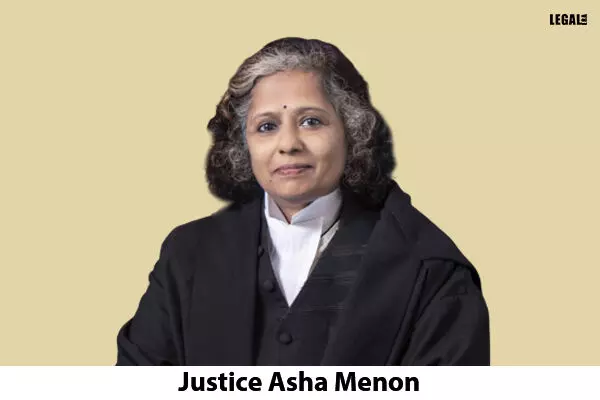- Home
- News
- Articles+
- Aerospace
- Artificial Intelligence
- Agriculture
- Alternate Dispute Resolution
- Arbitration & Mediation
- Banking and Finance
- Bankruptcy
- Book Review
- Bribery & Corruption
- Commercial Litigation
- Competition Law
- Conference Reports
- Consumer Products
- Contract
- Corporate Governance
- Corporate Law
- Covid-19
- Cryptocurrency
- Cybersecurity
- Data Protection
- Defence
- Digital Economy
- E-commerce
- Employment Law
- Energy and Natural Resources
- Entertainment and Sports Law
- Environmental Law
- Environmental, Social, and Governance
- Foreign Direct Investment
- Food and Beverage
- Gaming
- Health Care
- IBC Diaries
- In Focus
- Inclusion & Diversity
- Insurance Law
- Intellectual Property
- International Law
- IP & Tech Era
- Know the Law
- Labour Laws
- Law & Policy and Regulation
- Litigation
- Litigation Funding
- Manufacturing
- Mergers & Acquisitions
- NFTs
- Privacy
- Private Equity
- Project Finance
- Real Estate
- Risk and Compliance
- Student Corner
- Take On Board
- Tax
- Technology Media and Telecom
- Tributes
- Viewpoint
- Zoom In
- Law Firms
- In-House
- Rankings
- E-Magazine
- Legal Era TV
- Events
- Middle East
- Africa
- News
- Articles
- Aerospace
- Artificial Intelligence
- Agriculture
- Alternate Dispute Resolution
- Arbitration & Mediation
- Banking and Finance
- Bankruptcy
- Book Review
- Bribery & Corruption
- Commercial Litigation
- Competition Law
- Conference Reports
- Consumer Products
- Contract
- Corporate Governance
- Corporate Law
- Covid-19
- Cryptocurrency
- Cybersecurity
- Data Protection
- Defence
- Digital Economy
- E-commerce
- Employment Law
- Energy and Natural Resources
- Entertainment and Sports Law
- Environmental Law
- Environmental, Social, and Governance
- Foreign Direct Investment
- Food and Beverage
- Gaming
- Health Care
- IBC Diaries
- In Focus
- Inclusion & Diversity
- Insurance Law
- Intellectual Property
- International Law
- IP & Tech Era
- Know the Law
- Labour Laws
- Law & Policy and Regulation
- Litigation
- Litigation Funding
- Manufacturing
- Mergers & Acquisitions
- NFTs
- Privacy
- Private Equity
- Project Finance
- Real Estate
- Risk and Compliance
- Student Corner
- Take On Board
- Tax
- Technology Media and Telecom
- Tributes
- Viewpoint
- Zoom In
- Law Firms
- In-House
- Rankings
- E-Magazine
- Legal Era TV
- Events
- Middle East
- Africa
Charges to be framed only on materials, not speculations: Delhi High Court

Charges to be framed only on materials, not speculations: Delhi High Court
The case was adjudicated by a single judge bench comprising of Justice Asha Menon.
In a disproportionate assets case, the Delhi High Court in its recent judgement held that charges can be framed only on the material before the court and not on mere speculations. In the present case, the Court quashed the trial court order that had framed charges against a chartered accountant.
"There is no gainsaying that such a reasoning is indeed convoluted. Charge can be framed only on the material before the court and cannot be based on speculation. The court had to consider whether on the chargesheet and documents relied upon by the CBI, including the retracted confessional statements recorded under Section 164 CrPC, there were sufficient grounds to frame charge against the petitioner," the trial court held in its order.
While framing the charges, the Court observed that the possibility could not be ruled out that one of the accused persons could become an approver and disclose to the court the entire conspiracy, which the High Court was in line of.
The present issue arose in response to a plea of the Chartered Accountant, who challenged a 2016 order that charged him of the offence of abetment under IPC read with offences relating to criminal misconduct by a public servant under the Prevention of Corruption Act.
The main accused in the case was stated to be an executive engineer of the Bangalore Metro Rail Corporation who had allegedly amassed wealth disproportionate to his known sources of income.
The investigating agency alleged that the Chartered Accountant played a "pivotal role" in routing illegal money of the main accused by arranging companies and persons whose bank accounts were used for channelizing tainted money.
"The trial court also held that the possibility of one of the accused coming into the witness box under Section 315 CrPC read with Section 21 IPC could not also be ruled out and, therefore, when such a situation arose, the court would be justified to consider the aforesaid confession(s) of that/those accused to reach a decision after the trial. It concluded that grave doubt was enough to frame charge," the High Court noted.
The High Court also found it strange that the trial court thought it appropriate to refer to Section 315 (accused to be competent witness) CrPC rather than to Section 319 of the CrPC that empowered the court to proceed against any person appearing to be guilty of an offence during the course of trial, after the submission of the chargesheet.
According to the court, the trial court record did not disclose independent material against the petitioner.
"Even the learned trial court in the impugned order refers to no such material. Retracted statements of a co-accused will be utterly inadequate to establish, prima-facie, the participation of the petitioner in a conspiracy with the co-accused to facilitate the commission of the offences… in respect of which the charge has been framed against the petitioner which was why the learned trial court wanted to wait and watch, for a probability that did not exist in the immediate present, and which decision of the learned trial court cannot be upheld," the order held.



